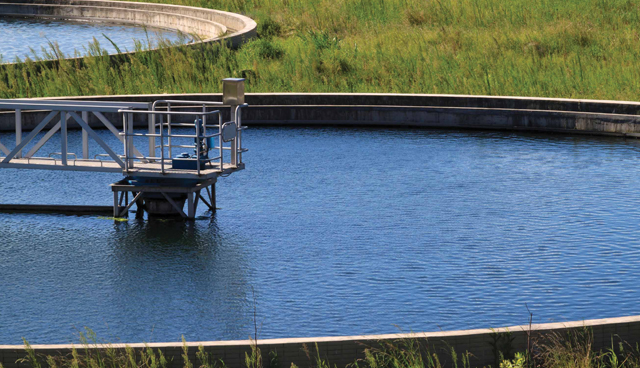Reflections on a new Water Abstraction Regime

The EU Water Framework Directive required member states to introduce regulatory abstraction regimes for water. Ireland has not yet done so and is in breach of the Directive. An Abstraction Bill has been contemplated by the Government for some time and its publication is imminent, write Danielle Conaghan and Yvonne Scannell of Arthur Cox.
In contemplation of legislation regulating abstractions, the European Union (Water Policy) (Abstractions Registration) Regulations 2018 required people abstracting ground or surface water to register abstractions exceeding 25 cubic metres (25,000 litres) or more each day. The 25 cubic metre threshold is designed to make abstraction regulation manageable by exempting small abstractions from registration.
It is likely that abstractions above this threshold will require licences in the near future. It will (or should) be almost impossible to get a licence for an abstraction which is unsustainable, e.g. if there is no water available for abstraction or if the amount available is unreliable, although there should be circumstances where exceptions must be made. At present there are thousands of abstractions in Ireland and nobody quite knows if they are sustainable at all. Until recently, there was no data base, never mind a reliable data base, of current abstractions and their location or volumes, and the 2018 Regulations attempt to address this issue.
When the new Abstraction Bill is published, questions will arise about the rights of people to abstract water or to continue to abstract water. The right to do so under common law is complicated and is subject to the overriding power (and now duty) of the State to regulate abstractions. This duty arises from the State’s obligation to promote sustainable development, to ensure respect for the human right to water and to comply with the objectives of the EU Water Framework Directive. But regulation must be reasonable and proportionate and have a solid scientific basis.
One can foresee some challenges to regulatory decisions refusing or limiting abstraction rights to those who have long enjoyed them. The State owns all water subject to certain rights vested in others when the Constitution was enacted. But even if a person could claim those vested rights, the State still has the power to regulate them. It is to be hoped that the State will set up a regime that will encourage those with vested rights to affirm them and if they are not affirmed within a reasonable period, that the legislation will provide that such rights will revert to the State with provision for just compensation. The clarification of rights to groundwater will be essential if we are to have a geothermal energy industry. A lack of clarity on this issue has paralysed any attempt to set up carbon neutral geothermal energy facilities.
It will be interesting to know how the proposed Bill will deal with abstraction rights that have not been exercised for some time and are arguably abandoned (e.g abstractions for mills) or with abstractions that are currently smaller than historically exercised. Presumably, one of the ways of identifying these was the requirement to register them under the 2018 Regulations that merely required persons abstracting (implying currently abstracting) water to register.
Will it be possible to argue that rights have been abandoned by non-use or that the new statutory right to abstract applies only to the quantities abstracted in the recent past or to those who had vested rights to abstract but not to those who merely abstracted without any proprietary right to do so? Or will the Bill state that unused rights will lapse? One can envisage some provision being made for grandfathering some existing abstraction rights or for permitting them until alternative water sources have been identified, particularly where abstractions for public water supply is concerned.
There are also likely to be conflicts between the human right to water and the obligation to ensure sustainable development or between various persons claiming abstraction rights from the same source. How will the State prioritise the rights of various claimants? Will there be adequate scientific information on existing sources to enable the just allocation of different quantities of water to different abstractors? Will the quality of waters in a water source be relevant in the decision-making on abstraction? Or will the regime deal with quantities and yield only? What will happen when there is an urgent need for public water supplies but the available water supply is being used by other users? In drought conditions, will abstractions for public water supplies be given priority over others?

Presumably, public rights will trump private rights. Will climate mitigation targets be relevant in allocating abstraction rights thereby enabling, for example, priorities to be given to abstractions that do not facilitate high (or higher) carbon emissions? The answers to all these questions will be fascinating.
Whatever the new Bill contains, one must hope that the regulatory regime designed will be effective and efficient and free from the excessive bureaucracy that characterises existing regulatory regimes. Lessons must be learned from the forestry and planning consenting regimes.
The legislation should be easy to understand. Getting licences should ordinarily be a one-step process. Applicants should be able to determine in advance with reasonable certainty whether their applications are likely to succeed. General binding rules (GBRs) instead of licences might be required for certain (or possibly most) abstractions thereby reducing the regulatory workload and the transaction costs for abstractors.
There has been a general reluctance to allow for GBRs in Ireland. These are much more efficient than licences and particularly suitable for abstraction regimes. But one result of Brexit (when we no longer have the advantage of English regulatory models and legislation to emulate) might be to require the use of GBRs. The Regulator (presumably the EPA or An Bord Pleanála) must be adequately resourced and properly equipped to make timely decisions within a mandatory timeframe. Nobody can wait long for water.
Abstractors must be incentivised to use water efficiently. Private law issues (ownership rights/prescriptive rights claims) should not be allowed to clog the system and prevent or delay important abstractions. It should be possible to isolate these from the regulatory authorisation needed to abstract. One hopes there will be provision for mediation. It is possible that such powers might help reduce the enormous amount of expensive environmental litigation.
The forthcoming Abstraction Bill is an opportunity for the State to deal with troublesome aspects of water law which are inhibiting progress and sustainable development. This Bill will be an opportunity to imaginatively create a modern and efficient abstraction regime for a precious natural resource.
![]()
Danielle Conaghan
T: +353 1 920 1082
E: danielle.conaghan@arthurcox.com
Yvonne Scannell
T: +353 1 920 1134
E: yvonne.scannell@arthurcox.com





